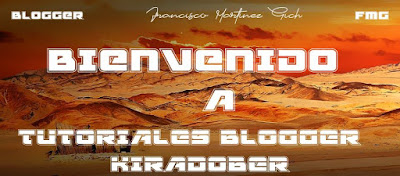Imagen que aparece con efecto deslizante
la imagen que visualizamos. En IE8 y IE9 también funciona, aunque no queda tan conseguido el efecto deslizante.
Como son efectos que la mayoría de veces los añadimos esporadicamente lo que haremos para probarlo es incluir todo el código necesario justo donde deseamos mostrar el efecto, ya sea una entrada o un gadget de HTML.
Primero añadimos el código para las imágenes, y ahí mismo especificamos el tamaño de la primera imagen.
Por favor mira la demostración:
Vamos al asunto
1º Ir a Blogger
2º Añadir un Gadget o introducir este codigo en una entrada (en HTLM)
_________________________________________________________________________________<div class="pulloutimage" style="height: 223px; width: 298px;">
<img class="original" src="Url-primera-imagen" />
<img class="ondemand" src="Url-segunda-imagen" />
</div>
_________________________________________________________________________________
A continuación de las imágenes copiamos y pegamos los estilos:
HTML podemos añadir en la plantilla antes de ]]></b:skin>
_________________________________________________________________________________
<style>
.pulloutimage{
position: relative;
}
.pulloutimage img{
position: absolute; /* absolute position and stack images inside container */
left: 0;
/* aquí estilos para el borde de la primera imagen */
}
.pulloutimage img.ondemand{ /*CSS for image shown on demand */
opacity: 0;
visibility: hidden; /* hide it initially (mainly for legacy browsers) */
}
.pulloutimage img.original{
z-index: 1; /* set base z-index of initially shown image */
}
@-webkit-keyframes revealfromright{ /* keyframe animation that slides a DIV out from another before overlapping later */
0%{ /* Start of animation */
z-index: -1;
opacity: 0;
}
50%{ /* Half way point, move image to right edge of container */
opacity: 1;
z-index: -1;
left: 100%;
box-shadow: none;
}
51%{ /* 51% point, stack animating image on top of original image */
z-index: 2;
}
100%{ /* Final point, move animating image back so it's on top of original */
left: 0;
box-shadow: 8px 8px 15px gray;
}
}
@-moz-keyframes revealfromright{
0%{
z-index:-1;
opacity:0;
}
50%{
opacity:1;
z-index:-1;
left:100%;
box-shadow: none;
}
51%{
z-index:2;
}
100%{
left:0;
box-shadow: 8px 8px 15px gray;
}
}
@-ms-keyframes revealfromright{
0%{
z-index:-1;
opacity:0;
}
50%{
opacity:1;
z-index:-1;
left:100%;
box-shadow: none;
}
51%{
z-index:2;
}
100%{
left:0;
box-shadow: 8px 8px 15px gray;
}
}
.pulloutimage:hover img.ondemand{ /* when mouse rolls over pulloutimage container, style to apply to "ondemand" image */
-webkit-animation-name:revealfromright; /* specify animation keyframe */
-webkit-animation-duration: 1s;
-webkit-animation-iteration-count: 1;
-moz-animation-name:revealfromright;
-moz-animation-duration: 1s;
-moz-animation-iteration-count: 1;
-ms-animation-name:revealfromright;
-ms-animation-duration: 1s;
-ms-animation-iteration-count: 1;
animation-name:revealfromright;
animation-duration: 1s;
animation-iteration-count: 1;
visibility:visible;
opacity:1;
box-shadow: 8px 8px 15px gray;/* esto es la sombra */
z-index:2;
/* aquí estilos para el borde de la segunda imagen */
}
.pulloutimage:hover img.original{ /* when mouse rolls over pulloutimage container, style to apply to "original" image */
opacity:0.5;
}
</style>
_________________________________________________________________________________
En los estilos está marcado el lugar que podemos modificar si deseamos añadir algún tipo de borde a las imágenes.
- La sombra que muestra la segunda imagen la podemos quitar eliminando la línea con la propiedad box-shadow.





![About [span]me[/span]](https://blogger.googleusercontent.com/img/b/R29vZ2xl/AVvXsEhROXZsz8M8oVhZcyUCDRCPnpSRZNnSGtQOYLB44tAHitizrv-Mx16sAya8i8ZsqPj5mFI9nDwFxDh10bQHopRWOzwoFkCAm7hlYZYG977gQF7ZClpSdClbdHgT97h8QBMc2v86ZJ1zOao/s1600/esta+es+la+buena.jpg)











0 comentarios:
Publicar un comentario